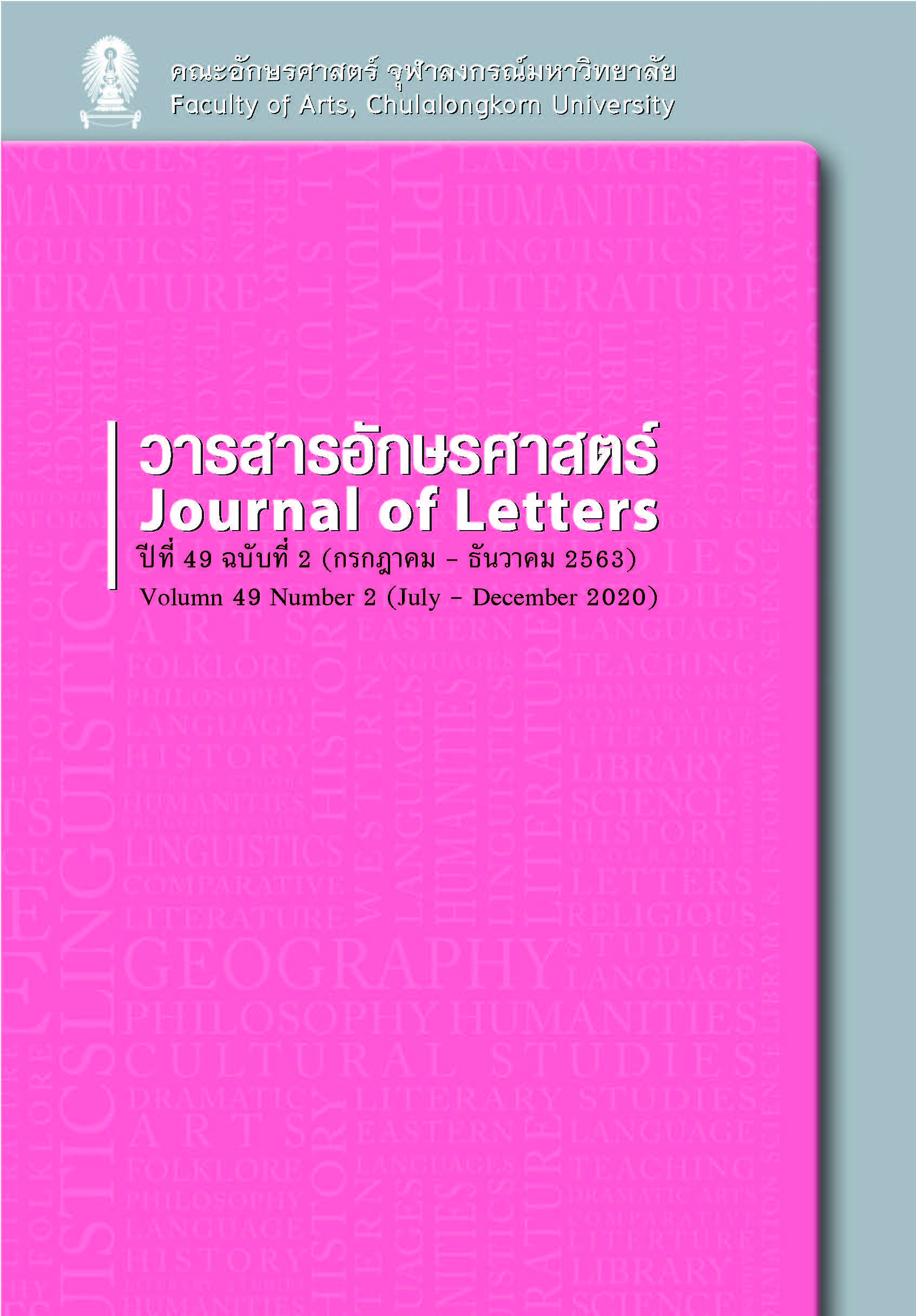An Analysis of Writing Assignments in German Textbooks Schritte international neu I and II
Keywords:
Writing process, Foreign language writing, Writing function in foreign language learning, Writing as a problem solving-process, Writing assignmentsAbstract
The purpose of this research is to analyze the writing assignments in German textbooks, Schritte international neu I and II, which are used in German classes at the Faculty of Humanities, Srinakharinwirot University. Rainer Bohn’s theory of writing assignment classification is used as an analytical framework. According to this theory, writing assignments can be classified into two main types: writing assignments for developing vocabulary, grammar, listening skills, speaking skills, and reading skills; and assignments for developing writing skills. It is found that the writing assignments in these two textbooks are mostly for vocabulary and grammar review. The types of writing exercises found are cloze tests, sentence completion, writing preparation for conversation, and answering questions from listening or reading exercises. Students are usually required to write at word and sentence level. It is also found that there are more writing assignments for developing speaking and listening than for reading, and there are many fewer assignments for developing writing. Most assignments for writing development are reproductive writing assignments. This is to give students a framework for their writing assignments and to help them practice using vocabulary, phrases, idioms and sentences from the source. In the second textbook, productive writing assignments and writing assignments for specific purposes, i.e., writing greetings for different occasions, have been added.
References
ภาษาต่างประเทศ
Bohn, Rainer. 2001. Schriftliche Sprachproduktion. In Deutsch als Fremdsprache. Ein internationales Handbuch (V. 19.2), Gerhard Helbig, Lutz Götze, Gert Henrici, and Hans-Jürgen Krumm, eds., 921-923. Berlin: de Gruyter.
Flower, L. S., & Hayes, J. R. 1980. The Dynamics of Composing: Making Plans and Juggling Constraints. In Cognitive Process in Writing: An Interdisciplinary Approach, Lee W. Gregg and Erwin R. Steinberg, eds., 8-12. Hillsdale, New Jersey: Lawrence Erlbaum Associates.
Funk, H., Kuhn, C., Skiba, D., Spaniel-Weise, D., & Wicke R. E. 2014. Aufgaben, Übungen, Interaktion. München: Goethe-Institut.
Heinemann, W., & Viehweger, D. 1991. Textlinguistik: Eine Einführung. Tübingen: Niemeyer.
Huneke, H.-W., & Steinig, W. 2010. Deutsch als Fremdsprache. Eine Einführung (5th ed.). Berlin: Erich Schmidt.
Kast, Bernd. 1999. Fertigkeit Schreiben. Fernstudieneinheit 12. München: Langenscheidt.
Kruse, Otto. 2010. Lesen und Schreiben. Studieren, aber richtig. Konstanz: UVK Verlagsgesellschaft mbH.
Niebisch, D., Penning-Hiemstra, S., Pude, A., Specht, F., Bovermann, M., & Reimann, M. 2016a. Schritte international neu 1. Deutsch als Fremdsprache Kurs-und Arbeitsbuch. München: Hueber.
Niebisch, D., Penning-Hiemstra, S., Pude, A., Specht, F., Bovermann, M., & Reimann, M. 2016b. Schritte international neu 2. Deutsch als FremdspracheKurs-undArbeitsbuch. München: Hueber.
Portmann-Tselika, Paul R. 2002. Textkompetenz und unterrichtlicher Spracherwerb. In: Textkompetenz. Neue Perspektiven für das Lernen und Lehren, Paul Robert Portmann-Tselika and Sabine Schmölzer-Eibinger, eds., 13-43. Innsbruck: Studien Verlag.
Wygotski, Lew S. 1974. Denken und Sprechen (Gehard Sewekow, Trans.; 5th ed.). Stuttgart: Fischer.
Downloads
Published
How to Cite
Issue
Section
License
Copyright and plagiarism
Authors are responsible for obtaining permission to use copyrighted materials from copyright owners. Authors are responsible for observing requisite copyright law when quoting or reproducing copyrighted materials. Quotations and reproductions of content from other published sources must be accompanied by a reference and all sources should be clearly listed in the references section. Quotations and reproductions of content from external sources without due attribution could be considered a severe infringement of academic conduct and may constitute a legal offence under the Copyright Act of B.E. 2537. Any legal ramifications arising from the infringement of copyright regulations would be the sole responsibility of the author(s).



